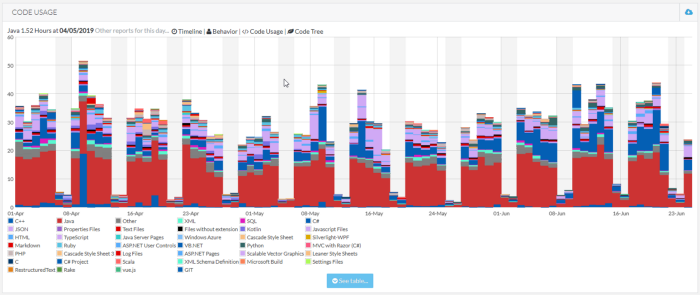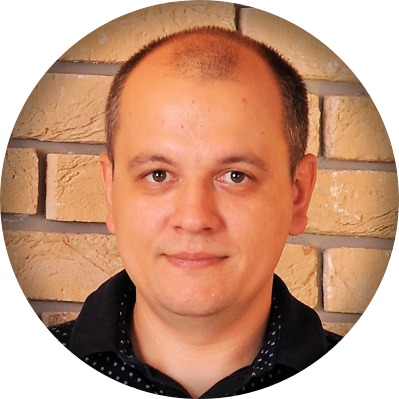Contents
It’s no secret that software development is one of the most promising fields in today’s economy, In fact, IT is one of the largest fields for remote jobs, ranked number one in 2019. Why? These jobs offer high salaries but a smaller educational investment than many other careers. There are countless coding schools popping up weekly to teach you the skills needed to get a programming job. Students can get the education they need to enter the workforce in about a year.
In a time where student loan debt is climbing, this career path and these schools are an attractive option for many. One of these institutions, Lambda School, even offers free tuition in exchange for a portion of future earnings once you’re employed at a certain income level. The best part? If you don’t find a job or reach that level of income you don’t pay a dime.
It’s clear that this field is attracting new talent. The question is: If software development is the best educational venture for finding a job today, what’s the best programming language to learn to get a job at a company like Crossover? In this post, we’ll answer that question and get more insight from experts who explain what they look for and how to prepare for testing.
What are the top programming languages to learn in 2019?
According to Stack Overflow’s 2019 Developer Survey, JavaScript is the most popular language among developers for the sixth year in a row. For that reason, many aspiring developers will choose to focus on this language. That said, you shouldn’t let other languages fly under the radar. To understand what programming languages you should know, you first have to look at what types of businesses you want to work for.
Python is also a language that is increasing in popularity year over year, so that’s another language to consider.
Core differences between Python and Java
- Java is object-oriented while in Python it is optional to use the objects
- Java the JVM which requires more resources for processing
- Python is an interpretive language where you only need an interpreter running
- Python is used a lot in DevOps
- Most enterprise software is written in Java; it’s the new Cobol
- Most Android development is done in Java
The majority of companies want to hire experienced coders who can show their businesses value from day one. You can make yourself a much better candidate for roles by proving that you already have the programming skills required. Some companies, like Crossover, will give you access to resources that teach you about their unique processes. However, you need to have the skills to hit the ground running if you want the job.
So, what skills are these? What languages should you learn? The truth is, there isn’t one answer on what programming language to learn to get a job in the industry. Different programming sectors require unique skills, so it’s up to you to determine the sector you want to work in and focus your attention towards the types of languages you acquire should acquire to succeed in that role.

However, there are a handful of popular languages that can put you on the path to landing a job fast. Here’s a look at the languages you may want to learn, based on the sector you want to work in.
For Websites
For Machine learning, AI, and Big Data analytics
- Python with TensorFlow for machine learning (e.g., developing chess-playing AIs)
- Java with Hadoop for big data processing (e.g., leveraging the processing power of Amazon’s web servers)
- Scala with Spark for high throughput data streaming (e.g., streaming related to online gaming)
For Back-end software development
For Mobile apps
- Javascript, Ionic, React-native
- iOS (Swift, Objective-C)
- Android (Java, Kotlin)
For Systems programming, robotics, and hardware
- C and C++, Golang
This list is a great place to start if you want to land a job in the industry. However, if you really want to have an advantage over other candidates, knowing what businesses actually look for in developers is important.
During our hiring process, for example, we ask candidates to take a small application, fix code errors and implement some new features. Some companies test programmers using big assignments that take long a long time but others opt for assignments that can be completed quickly. This allows programmers to show and improve their skills
To give more insight on what it takes to land the job, we asked a group of Chief Software Architects exactly what their business looks for when hiring software remote developers.
Best programming languages to know: expert advice

Boris Papevis
Chief Software Architect
Ignite Technologies
Boris Papevis has been programming for 20+ years. He started as C++ Chief Architect at Ignite just over a year ago.
What does Ignite do?
Ignite acquires decades old legacy products. Usually they’re products running large scale databases, and big data products. Even though most of their products are written in Java, C#, C++, in the future you will see Ignite purchase more products written in languages like Ruby, Python, PHP. A good example of this is Jive Software.
What programming languages do you need to know at Ignite?
To work for Ignite you need have experience in languages like Java, C#, Ruby, Python. Some of their recently acquired mobile companies use Java/Kotlin(Android) and Swift (iOS).
We asked Papevis for his advice on the best way to prepare for testing. His advice is to “be comfortable with languages, not only how they work, but how they’re used.” He also notes that the industry trend today is towards finding simplicity in coding. “In the past you had to type a lot of code. In the future, programmers will use libraries in simpler and easier ways. The goal: type less, create more.”

Douglas Yau
Chief Software Architect
Kayako
Douglas Yau has a background in Java, Javascript, PHP, and Python programming but enjoys the architecture part of his current role.
What programming languages do you need to know at Kayako?
Kayako’s main programming language is PHP but it also uses Javascript, Python, Go, Elixir. To manage the scope of work, Douglas Yau is learning Elixir.
Elixir is a functional, concurrent, general-purpose programming language. It runs on the Erlang virtual machine (BEAM). Elixir builds on Erlang and shares the same abstractions for building distributed, fault-tolerant applications. Elixir also provides extensible design and tooling.
Elixir is good for managing concurrent systems. For example, Kayako has four instances to link around 50,000 connections. Trying to do the same thing in Java would require a lot more resources. He also uses Protractor, a tool for end-to-end testing.
Yau suggests that the best programming language to get a job at Crossover is Java. Most of the products at Crossover are written in Java.
More expert advice: preparing for tests
Yau says the best way to prepare for the testing is to ”learn a lot about algorithms. Not just how to write them, but how to think about using them to solve problems. You can do this by reviewing other people’s code.”

Andrey Artyukhov
Chief Software Architect
Aurea
Andrey Artyukhov is on the Engineering Architecture Team, which is responsible for writing specifications for products by describing the features asked for by the VP of Engineering. Artyukhov’s core programming experience is Java. Over three years at Aurea, Artyukhov started as a software engineer and has been promoted twice. Today, Artyukhov analyzes products and helps the feature team develop new features.
What programming languages do you need to know at Aurea?
At Aurea, a Chief Architect must be able to work on any type of product. “If you’ve been programming for a long time the differences between languages is negligible, it’s more about what is around the language itself than the syntax,” says Artyukhov. “If you take Java for example, there is so much software written in Java, that there are many libraries compared to a new language like GO where there isn’t much code developed yet.”
What programming language should you learn first?
Artyukhov suggests that Python is great if you want to get started right away because it’s easy to access courses.
A good example of this for less experienced developers is CodeNation. This team works on prototypes and creating innovations. In CodeNation, Python is used because it allows the team to make something quickly without concerns about maintenance. A word of caution: If you only learn Python it’s easy to get into the habit of cutting corners. As a result, you may not learn how to write code properly.
Next steps: choosing a programming language
Simply put, there are two goals you can have as a programmer: you can either create new products or become a better coder. Python is the best language to learn if you want to prototype and test things quickly, but it’s not the best language if you want to become a better coder.
The truth is that if you want to become a better programmer the best strategy is to learn from the best coders, not just learn a language. This makes Java the ideal language to learn because with Java there are many projects to learn from online. It’s also very easy to comprehend the code. This means you can open any project and start reviewing it and you won’t be lost, which is not true with C++ or Python.
If you’re interested in working for Crossover, you can browse our open positions.







